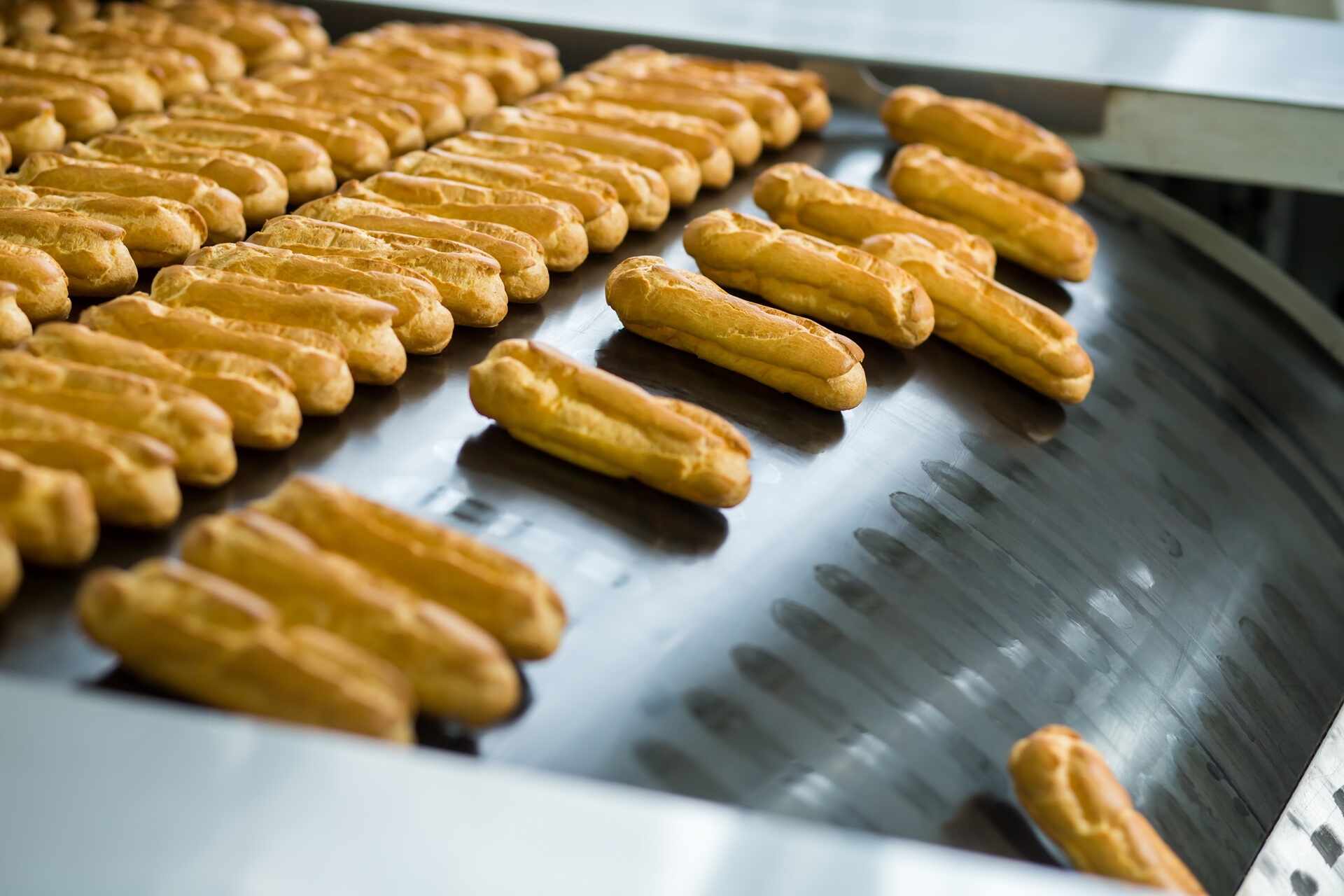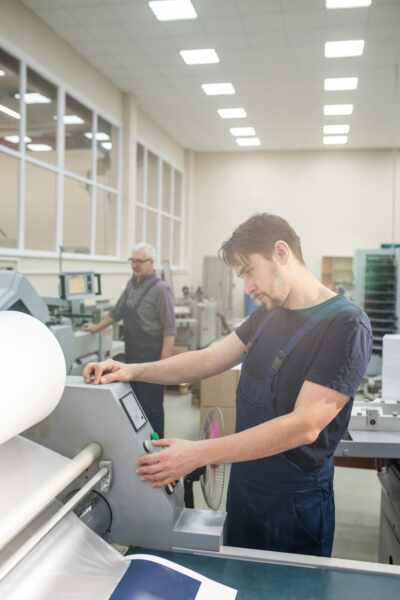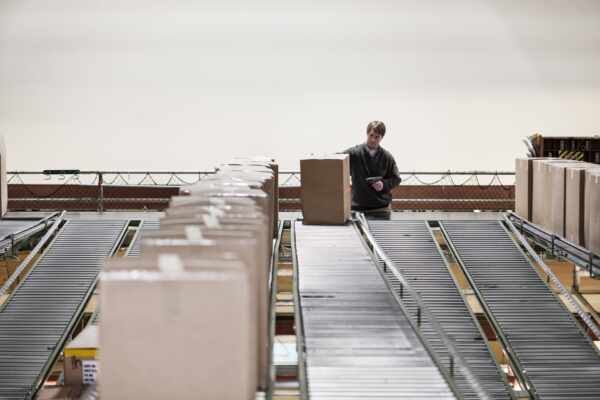The food manufacturing industry has unique requirements when it comes to selecting and implementing conveyor belt systems. Factors such as hygiene, safety, regulatory compliance, and operational efficiency are of paramount importance.
As a result, the demand for specialised conveyor belt technologies has grown, with an increased emphasis on hygienic design, ease of cleaning, and overall performance. To ensure the optimal performance of your food processing facility, it is critical to explore and adopt the most advanced conveyor belt technologies on the market.
In this informative article, we will discuss the latest conveyor belt technologies designed specifically for the food industry, focusing on their unique features and benefits in improving efficiency, hygiene, and product safety. From stainless steel belts with exceptional cleanability to modular designs catering to versatile production lines, we’ll delve into the key conveyor belt options available to help you make an informed decision that benefits your food manufacturing operation.
Furthermore, by partnering with conveyor belt solutions providers such as Change Parts Pty Ltd, you can leverage their expertise to help you select the right conveyor belt system, optimised for the specific needs of your food processing facility.
Stainless Steel Conveyor Belts: Exceptional Cleanability and Durability
Stainless steel conveyor belts offer unparalleled hygiene, durability, and easy cleanability, making them an ideal choice for the food industry. With their exceptional resistance to corrosion, high temperatures, and harsh cleaning agents, stainless steel belts are particularly well-suited for use in food processing environments where stringent sanitation protocols are in place. Key benefits of stainless steel conveyor belts include:
- Corrosion Resistance: Stainless steel belts are resistant to rust and chemical exposure, ensuring a longer lifespan and reducing the risk of contamination.
- High Temperature Tolerance: Stainless steel can withstand extreme temperatures, making it suitable for applications like baking, frying, and cooking.
- Ease of Cleaning: With their smooth surfaces and minimal crevices, stainless steel belts are easy to clean, significantly reducing cleaning times and the potential for bacterial growth.
Modular Plastic Conveyor Belts: Versatility Meets Hygiene
Modular plastic conveyor belts, constructed of interlocking plastic components, provide the food industry with a versatile and hygienic solution for various processing applications. These belts are designed to be easily reconfigured and cleaned, adapting to ever-changing production demands. Key features of modular plastic conveyor belts include:
- Customisable Configuration: Modular plastic belts can be configured to suit various food processing requirements, including curves, inclines, and straight runs.
- Easy Maintenance: Damaged components can be quickly replaced without disassembling the entire belt, minimising downtime.
- Enhanced Cleanability: The non-porous surface of these belts prevents bacterial growth, making them easy to clean and maintain, while also adhering to stringent food safety standards.
Fabric Conveyor Belts: Lightweight and Pliable Solutions
Fabric conveyor belts, typically made from polyester or nylon, offer a lightweight and pliable solution suitable for various food processing applications. With their pliability, they can be utilised in applications that require flexing or curved conveyors, such as dough handling, bakery production lines, or fruit and vegetable sorting. Key advantages of fabric conveyor belts for the food industry include:
- Customisation: Fabric belts can be coated with food-grade materials like polyurethane or PVC, ensuring compatibility with food safety regulations.
- Lightweight Construction: Fabric belts are lighter than steel or plastic, reducing the energy consumption of the conveyor system.
- Pliability: Fabric belts can be designed for applications requiring flexing, such as inclines, declines, or curves in production lines.
Positive Drive Conveyor Belts: Enhanced Traction and Precision
Positive drive conveyor belts feature a combination of modular plastic or stainless steel links and sprockets, ensuring enhanced traction and precise product positioning. This design eliminates the need for belt tensioning devices and reduces the risk of product slippage, making them ideal for the fast-paced environment of the food industry. Notable benefits of positive drive conveyor belts include:
- Improved Traction: The sprocket-driven design provides consistent traction and precise movement, reducing the risk of product slippage on the belt.
- Lower Maintenance: Positive drive belts do not require tensioning, decreasing maintenance requirements and simplifying cleaning procedures.
- Precise Product Positioning: The sprocket-driven system enables accurate product placement, enhancing efficiency in food packaging and processing applications.
Conclusion
When selecting a conveyor belt technology for your food manufacturing facility, it’s essential to consider factors like hygiene, efficiency, maintenance, and regulatory compliance. Stainless steel, modular plastic, fabric, and positive drive conveyor belts each offer unique benefits tailored to meet the demands of the food industry. By evaluating your facility’s specific needs and partnering with conveyor belt specialists like Change Parts Pty Ltd, you can identify and implement the ideal conveyor belt system to maximise your operations’ efficiency, safety, and hygiene.
Are you looking for a reliable conveyor belt company that understands the unique needs of the food processing industry? Look no further than Change Parts Pty Ltd! Our cutting-edge conveyor belt technologies are designed to help you improve the efficiency, hygiene, and compliance of your food processing facility. We offer a wide range of customisable conveyor belt solutions tailored to meet the specific needs of the food industry, so you can rest assured that you’re getting a solution that’s right for your facility. Contact us today to learn more about how our conveyor belt solutions can help you achieve your goals!




